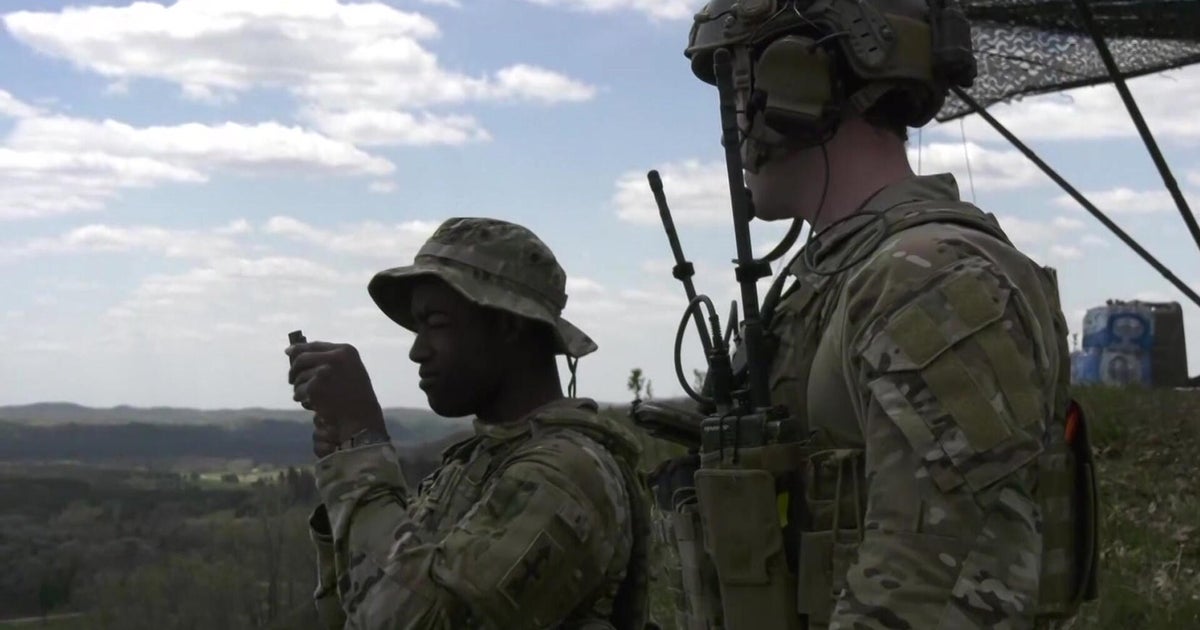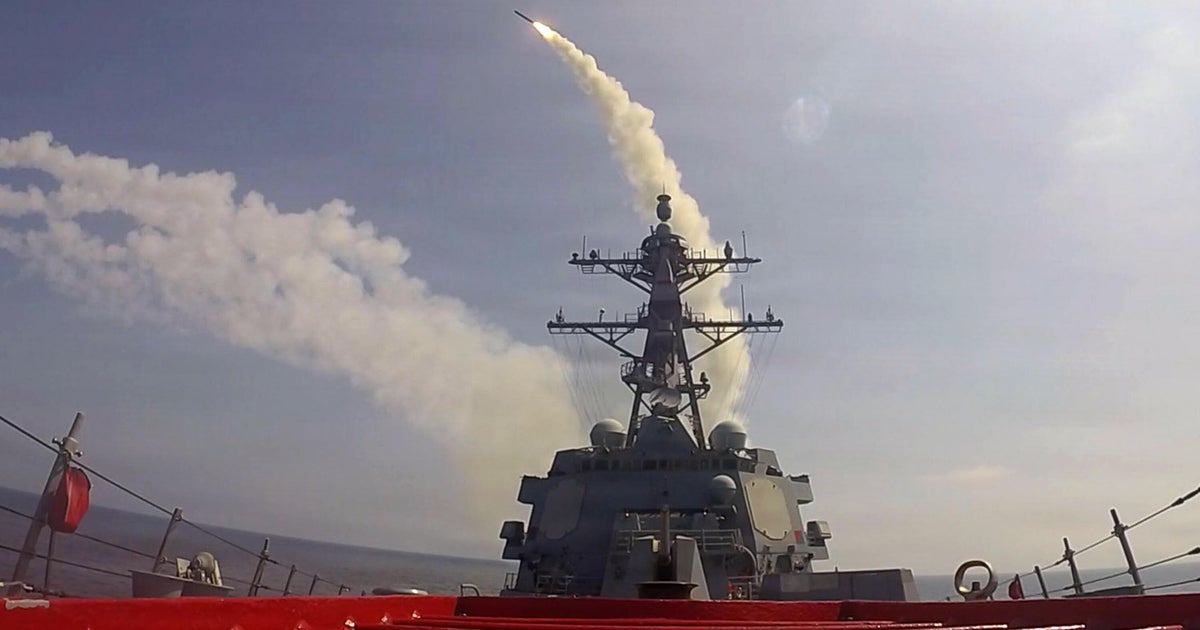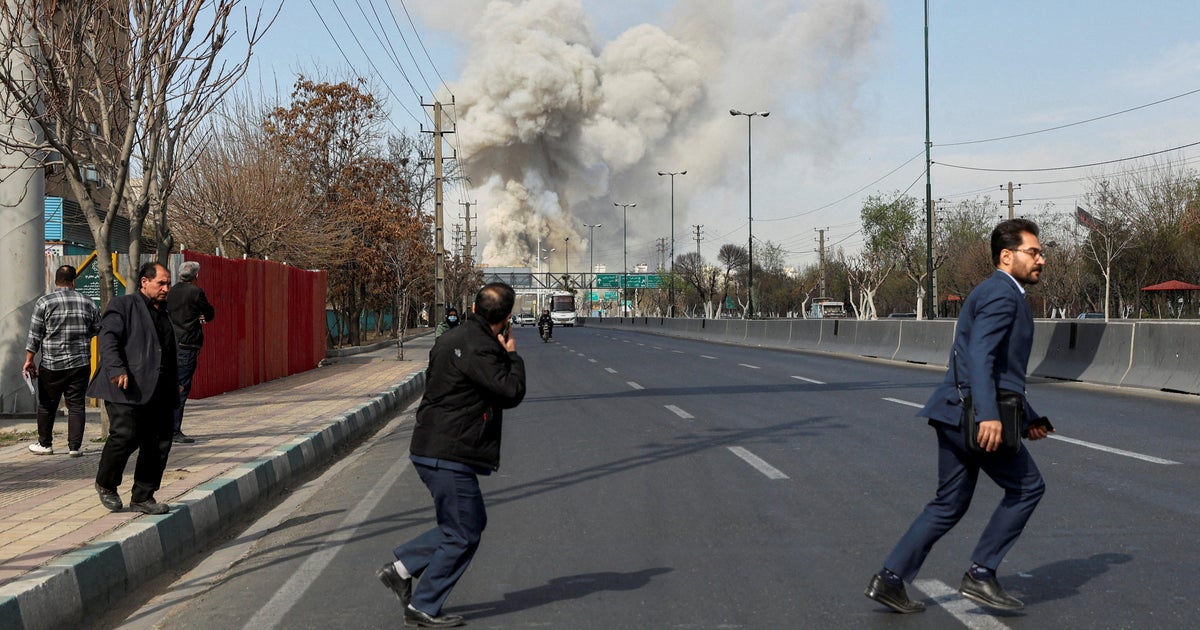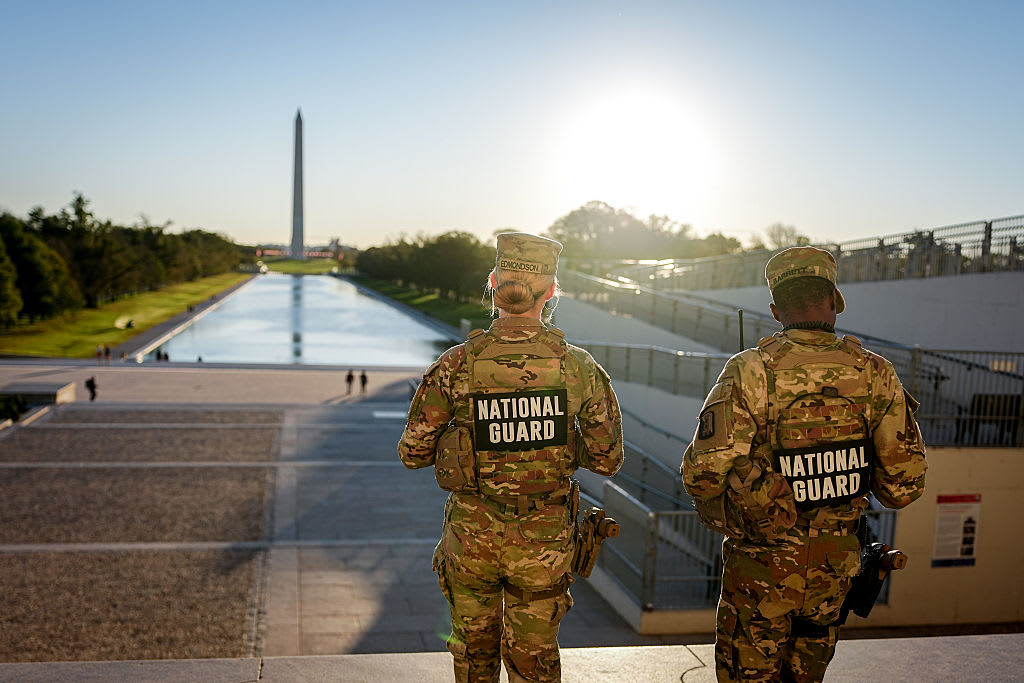Retired Adm. Winnefeld on National Guard at Mexico border, mixed messages on U.S. troops in Syria
Governors of several U.S. states bordering Mexico are welcoming President Trump's move to send National Guard troops to the border. The president signed a proclamation Wednesday night saying a "drastic surge of illegal activity" left his administration "no choice but to act."
According to CBS News military and homeland security analyst Sandy Winnefeld, a retired Navy admiral and former vice chairman of the Joint Chiefs of Staff, the "surge" could be related to weather.
"There is a cyclical ebb and flow of illegal immigration along the border that corresponds to the spring months and the fall months when the weather's a little nicer for people, a little easier to survive that trip," Winnefeld said Thursday on "CBS This Morning."
But he said it seems to differ from when Presidents George W. Bush and Barack Obama sent National Guard troops to the border in the past due to "a real large, historical spike in illegal immigration." Last year, by comparison, illegal crossings hit a 46-year low.
"It's almost as though the spikes occur in even-numbered years and perhaps there's one happening this year. But as you pointed out earlier, this is a historically low time for illegal immigration. So it does seem a little strange that we would be sending Guards to the border at this particular time."
Homeland Security Secretary Kirstjen Nielsen said illegal border crossings are increasing. According to U.S. Customs and Border Protection, border arrests are down more than 12 percent from this time last year. But more than 37,000 people were apprehended in March, the most in one month since Mr. Trump took office. The DHS says that's a 37 percent increase since the month before, the biggest month-to-month rise since 2011.
Nielsen said the DHS and the Pentagon will work with governors to deploy the guard. She did not say how many troops would go.
Federal law prohibits the military from carrying out domestic law enforcement unless authorized by Congress, so their activities would need to be limited.
"They will provide supporting tasks to the border patrol. They can provide mobility, they can enhance the surveillance that the border protection forces might do along the border, but they can't actually directly apprehend individuals. So it will be indirect support at best," Winnefeld said.
As for recent mixed signals the Trump administration is sending about the continued presence of U.S. troops in Syria, Winnefeld said "it's not at all surprising to see some inconsistencies in statements."
"I think most of the folks who are operational in this, the diplomats, the intelligence folks, the military folks, believe that they're making progress, they're invested in this, and they think that there are important U.S. interests at stake," Winnefeld said. "The president, on the other hand, came in with an 'America first' grand strategy and he's asking question about whether protecting those interests is worth the cost and blood and treasure. And he's looking back over many years in Iraq and Afghanistan, where it's a difficult job to get done."
Winnefeld said among the U.S. interests at stake are: "preventing increased Iranian influence in the region, preventing increased Russian influence in the region, trying to limit the extent of humanitarian catastrophe, prevent the reemergence of [ISIS]."
"So there are plenty of reasons to be there. The question will have to be resolved in the president's mind and his advisers' minds on whether it's worth the costs that it could take to get that done," Winnefeld said.



